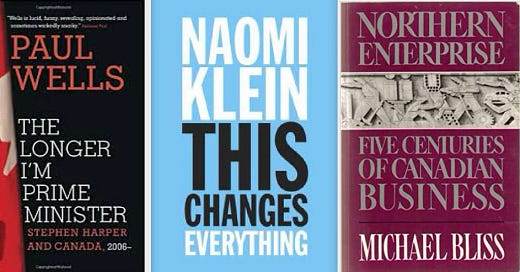The Sutherland House Prize
Announcing our small contribution to alleviating the crisis in nonfiction publishing
Welcome to the 154th edition of SHuSH, the official newsletter of The Sutherland House Inc. If you’re new here, hit the button:
Keep reading with a 7-day free trial
Subscribe to SHuSH, by Kenneth Whyte to keep reading this post and get 7 days of free access to the full post archives.



